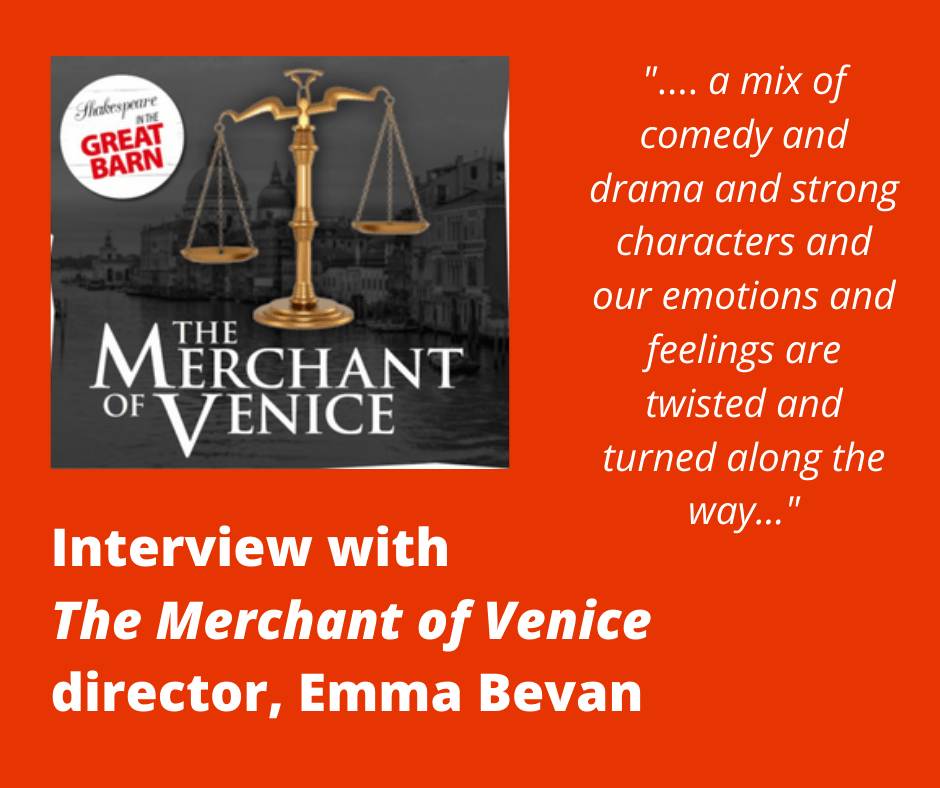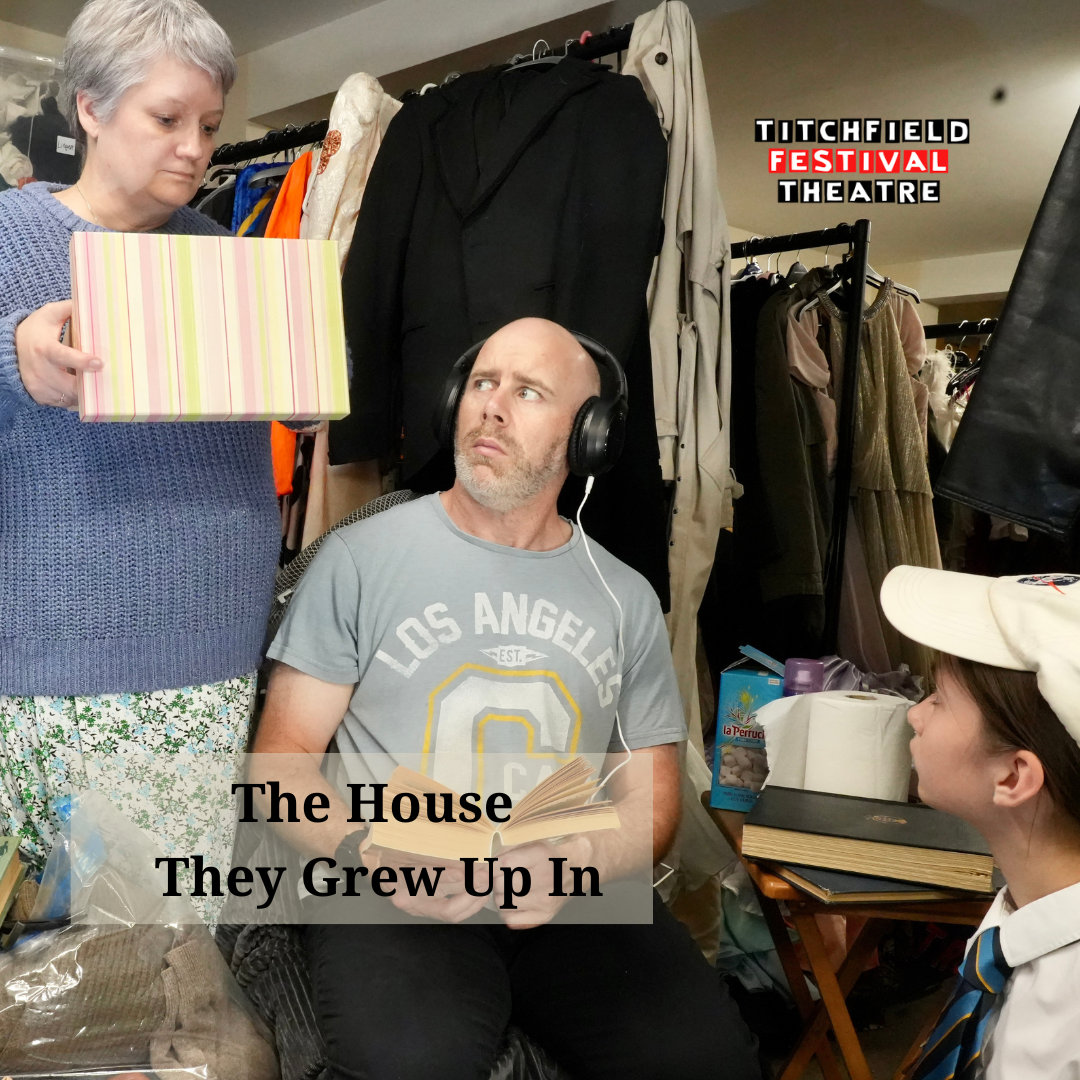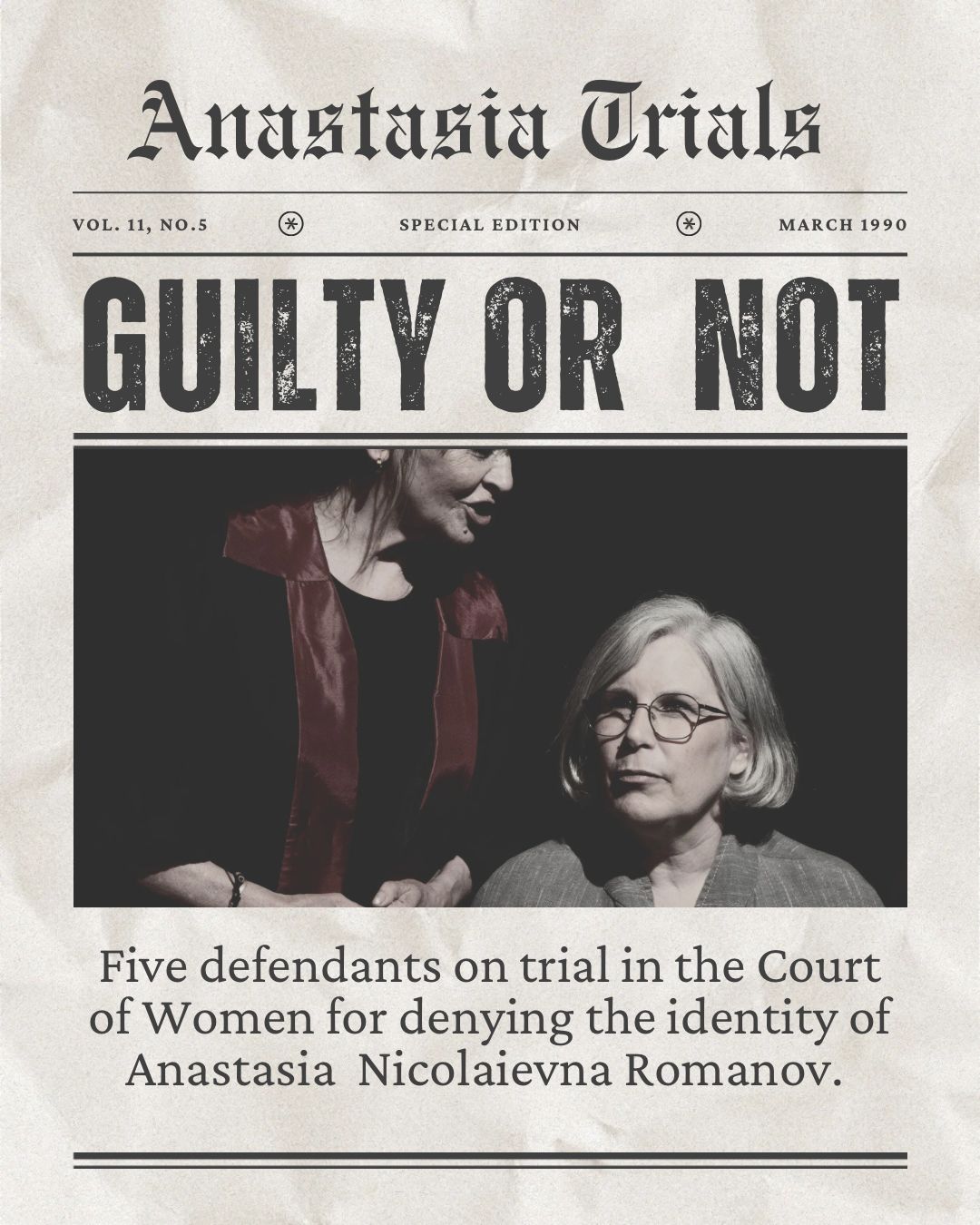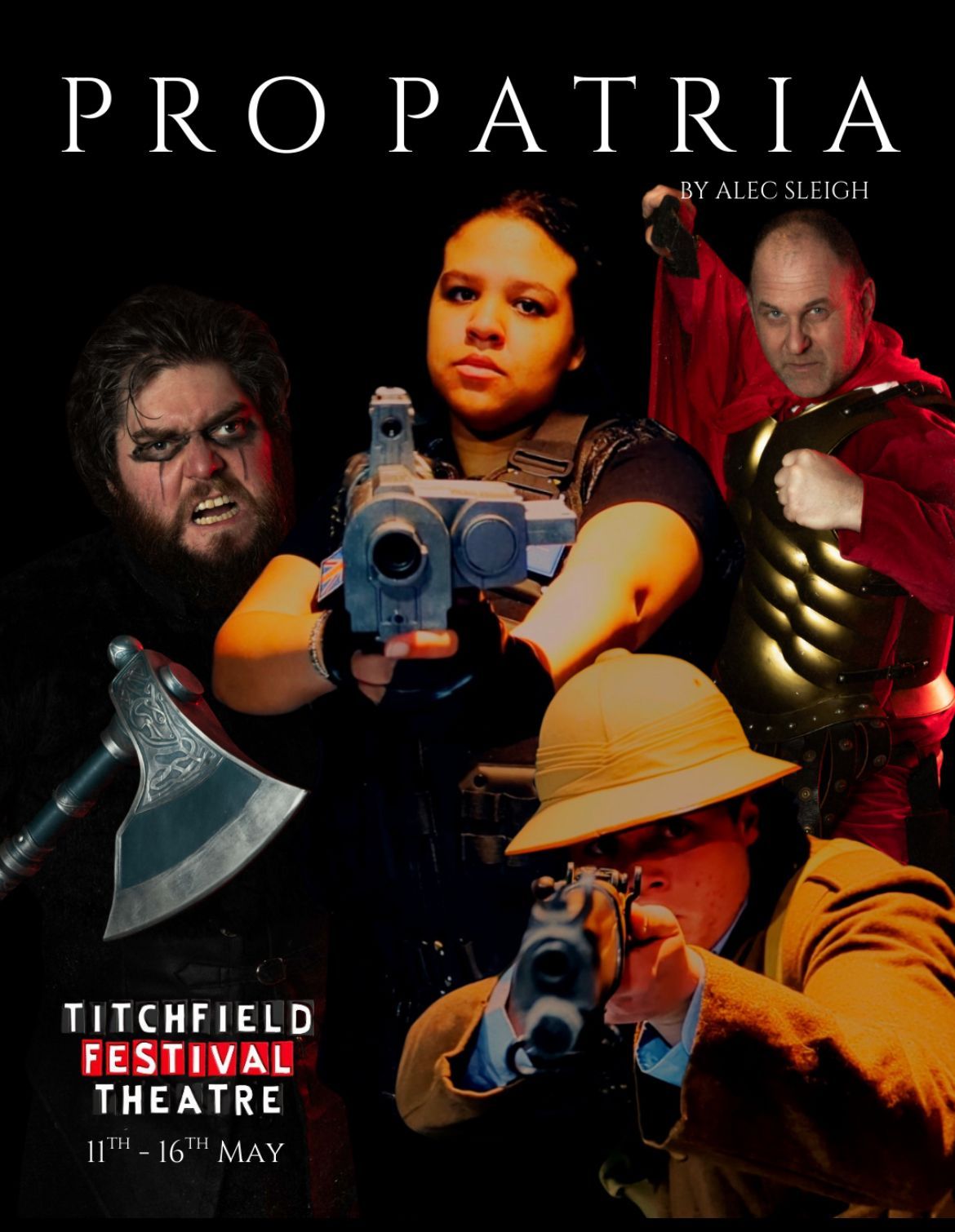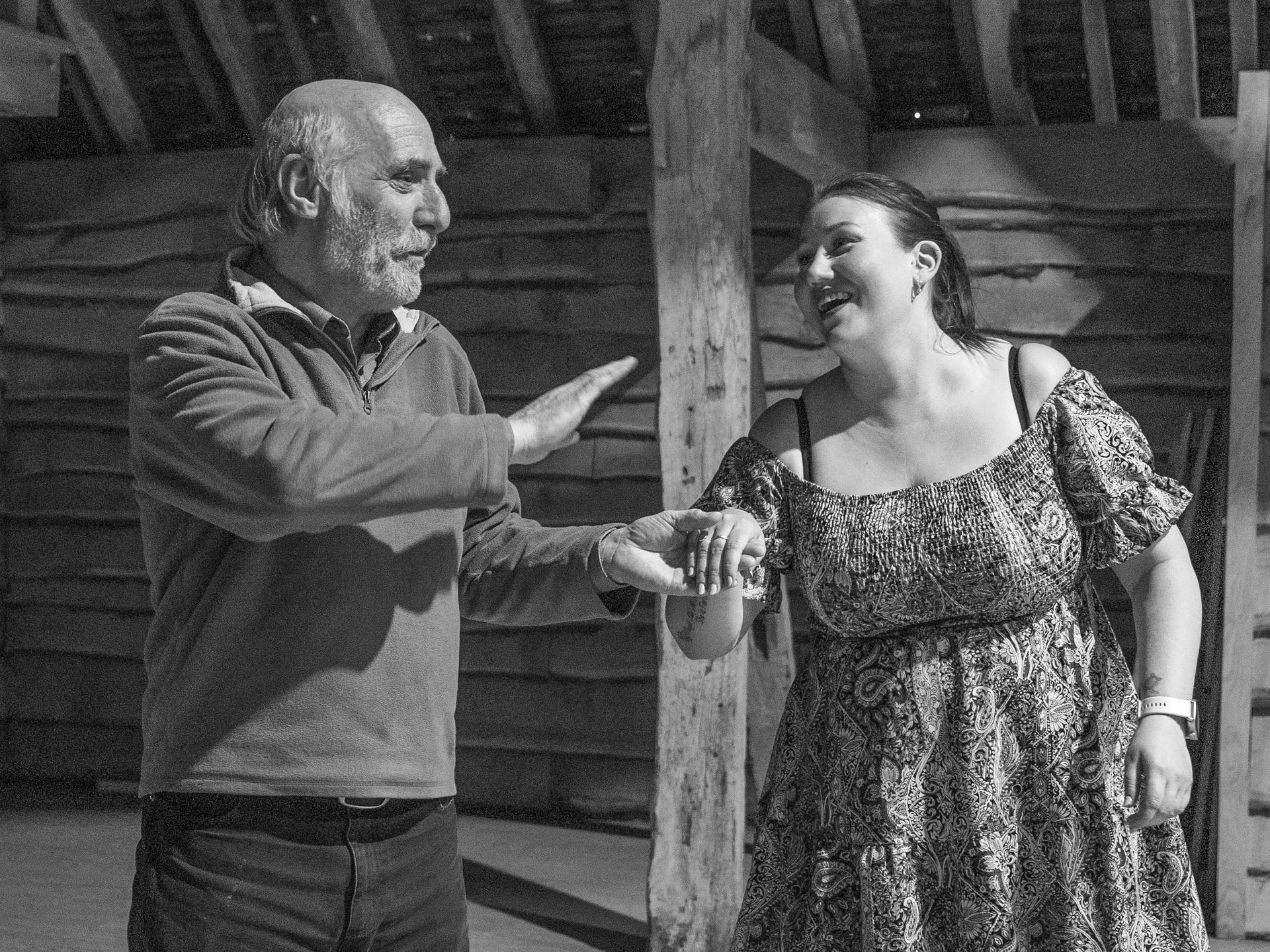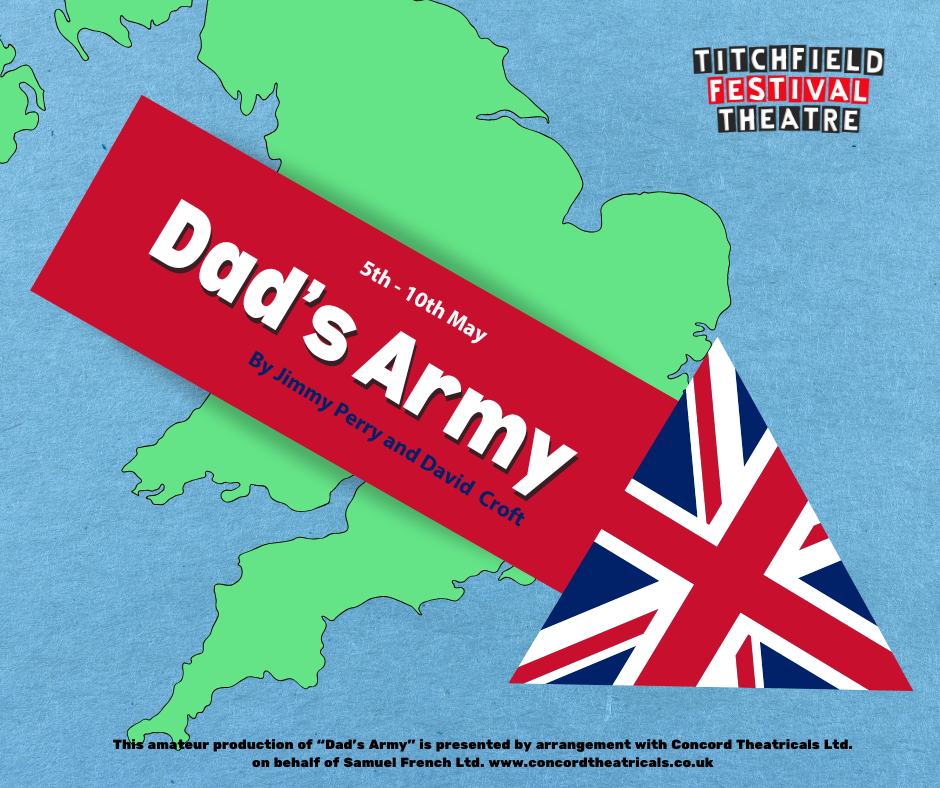If you prick us, do we not bleed? Interview with the TFT director of The Merchant of Venice
Emma Bevan talks to us about the whys and wherefores of directing this beautiful Shakespeare play
Many Titchfield patrons will be familiar with Emma Bevan who last year directed The Taming of the Shrew
at the Great Barn and is the writer of the popular Murder at the Theatre series. In August, Emma is directing The Merchant of Venice and Simon talked to Emma about why she loves the play – and believes that Shakespeare is the best storyteller of all time.
Simon: Why did you agree to direct Merchant of Venice (MoV)?
Emma: I asked to direct MoV this year. I hadn't seen a version of Merchant for many years; like many people it was the first Shakespearean play I studied at school and I have fond memories of it. It is a play in two parts: there is a lot of comedy, especially in the first half, and opportunity for lots of drama, especially in the second half. It raises lots of questions, mainly about antisemitism, which is currently very topical, following the issues in politics but with Black Lives Matter, the questions over the treatment on race is relevant.
Simon: Why did you agree to direct Merchant of Venice (MoV)?
Emma: I asked to direct MoV this year. I hadn't seen a version of Merchant for many years; like many people it was the first Shakespearean play I studied at school and I have fond memories of it. It is a play in two parts: there is a lot of comedy, especially in the first half, and opportunity for lots of drama, especially in the second half. It raises lots of questions, mainly about antisemitism, which is currently very topical, following the issues in politics but with Black Lives Matter, the questions over the treatment on race is relevant.
Simon: The play is of course not without its controversies - and some critics have called it antisemitic, due to the Jewish moneylender Shylock. How do you feel Shakespeare depicts Shylock - and his tormentors? Sympathetically - or not?
Emma: This play is very much about antisemitism. In the 16th century Jews in Venice had to live in ghettos. They had to wear red caps in public and were under curfew. Christians were not allowed to make interest on loans, Jews had no such religious law, and therefore were making a lot of money. There was considerable mistrust and dislike directed towards the Jewish community and immigrants to Venice were treated badly.
Shylock is treated badly, is teased, spat on and living under curfew restrictions. Watching his treatment you feel sorry for him. This is a desperate man who has lived through prejudice, then loses his daughter who runs off with a Christian taking much of his wealth with her. When he has the opportunity to get his own back, we lose sympathy for him when he looks to kill the Merchant. As an audience member we find it easier to side with the gentler (spitting on Shylock aside) merchant because his punishment is so extreme. Our sympathies return when Shylock is forced to become a Christian and deny his faith. Shylock is not a particularly nice character, even his daughter wants to get away from him. And yet as an audience watching him being tormented is uncomfortable because we don't like how he is treated as a human being, not just because we like him. I think that makes the message stronger because of that. I wanted to bring the audience along a journey of this changing sympathy, and so the scenes of what he is going through are clear to the audience.
I believe that Shakespeare was a social commentator. When you look at his plays which look at the treatment of women and class in his other plays, he raises a lot of questions, and this is the same. In England at that time Jews practised their faith secretly, turned to Christianity or at least pretended to do so. Initially Elizabeth I had said people would be allowed to practice their own choice of faith, but during her reign this changed as she was influenced and then believed that some of her people wanted to overthrow her. It was written shortly after Elizabeth's physician - who was a converted Jew - was hung for attempting to poison the queen, which he denied. Shakespeare wrote plays that were political and/or commented on society but would change the location and/or time it was set, so for him to write a play reflecting a time that Jewish people who were not allowed to practice their faith in England but setting it in Venice suggests his own displeasure of the treatment of Jews in Elizabethan England.
I believe that Shakespeare was a social commentator. When you look at his plays which look at the treatment of women and class in his other plays, he raises a lot of questions, and this is the same. In England at that time Jews practised their faith secretly, turned to Christianity or at least pretended to do so. Initially Elizabeth I had said people would be allowed to practice their own choice of faith, but during her reign this changed as she was influenced and then believed that some of her people wanted to overthrow her. It was written shortly after Elizabeth's physician - who was a converted Jew - was hung for attempting to poison the queen, which he denied. Shakespeare wrote plays that were political and/or commented on society but would change the location and/or time it was set, so for him to write a play reflecting a time that Jewish people who were not allowed to practice their faith in England but setting it in Venice suggests his own displeasure of the treatment of Jews in Elizabethan England.
Simon: I have seen reviews which also regard MoV as one of the most beautiful of Shakespeare's plays. What do you most love about the play?
Emma: What do I love most? The story. Shakespeare remains (in my view) the greatest storyteller of all time. That aside I love that there are strong women in this play, Shylock's daughter makes her own decision to leave and marry. Portia saves Antonio from certain death. I love that in a time when women were supposed to stay at home and do as they are told, here are two strong women, and one who saves the day. The men are weak, Bassanio and Gratiano give their wedding rings away within days of receiving them, influenced more by their male friend than their wives. They are weak men anyway - spending their money on rich living and needing help from their best friend. Bassanio wants to marry Portia because she is beautiful and most importantly extraordinarily rich. When legal proceedings begin, along comes clever Portia to save the day.
As usual there is a mix of comedy and drama and strong characters and our emotions and feelings are twisted and turned along the way...
Emma: What do I love most? The story. Shakespeare remains (in my view) the greatest storyteller of all time. That aside I love that there are strong women in this play, Shylock's daughter makes her own decision to leave and marry. Portia saves Antonio from certain death. I love that in a time when women were supposed to stay at home and do as they are told, here are two strong women, and one who saves the day. The men are weak, Bassanio and Gratiano give their wedding rings away within days of receiving them, influenced more by their male friend than their wives. They are weak men anyway - spending their money on rich living and needing help from their best friend. Bassanio wants to marry Portia because she is beautiful and most importantly extraordinarily rich. When legal proceedings begin, along comes clever Portia to save the day.
As usual there is a mix of comedy and drama and strong characters and our emotions and feelings are twisted and turned along the way...
Simon: Let's talk about one of the key passages in the play, “If you prick us, do we not bleed? If you tickle us, do we not laugh?” What is the significance to you?
Emma: This is a key passage, which I think shows that Shakespeare did not approve of the attitude towards Jews at the time. He is clearly saying that people are people - we all are made the same, we physically react the same and we all have emotions, we cry, laugh, we bleed. It is clearly an attempt to implore us to show some humanity towards all people. To me there is a huge correlation to modern life. I think this passage is telling us that every human being of any faith, colour or sexual preference deserves to be treated like a human being and should be treated fairly. It is a powerful speech and its words are beautiful and poignant.
Emma: This is a key passage, which I think shows that Shakespeare did not approve of the attitude towards Jews at the time. He is clearly saying that people are people - we all are made the same, we physically react the same and we all have emotions, we cry, laugh, we bleed. It is clearly an attempt to implore us to show some humanity towards all people. To me there is a huge correlation to modern life. I think this passage is telling us that every human being of any faith, colour or sexual preference deserves to be treated like a human being and should be treated fairly. It is a powerful speech and its words are beautiful and poignant.
Simon: Please can we now talk about the key characters and actors in the play.
Emma: 1. Shylock, the money lender and representing the Jewish community in Venice. He is not particularly likeable, but he is a strong character trying to work and live in an oppressed society. Randy Vince is playing Shylock, a role he has played before. This part is perfect for him, he understands the character well and the audience will feel his pain as the play develops.
2. Portia is played by Lou Mannell. Portia is beautiful, gracious, rich, intelligent and quick-witted, with high standards for her potential romantic partners. She is a strong woman, typical of Shakespeare's heroines but there is no hint that she will be the rescuer later in the play. She is a free spirit but one who lives by the rules set out. Portia rescues Antonio (the Merchant) through cunning and pretending to be a man, a lawyer. She is able to prove points in law that no one else has thought of. It is interesting that before she becomes involved in this plot, she is fighting her own desire not to be married to someone on the luck of a suitor opening the right box. There is comedy in this, and she ends up with the one she feels is the most appealing, another pointer by Shakespeare that women were under their father's will on who they can marry. Not only does this work out well for her, but she then manages to save the day and achieve what none of the men could.
Emma: 1. Shylock, the money lender and representing the Jewish community in Venice. He is not particularly likeable, but he is a strong character trying to work and live in an oppressed society. Randy Vince is playing Shylock, a role he has played before. This part is perfect for him, he understands the character well and the audience will feel his pain as the play develops.
2. Portia is played by Lou Mannell. Portia is beautiful, gracious, rich, intelligent and quick-witted, with high standards for her potential romantic partners. She is a strong woman, typical of Shakespeare's heroines but there is no hint that she will be the rescuer later in the play. She is a free spirit but one who lives by the rules set out. Portia rescues Antonio (the Merchant) through cunning and pretending to be a man, a lawyer. She is able to prove points in law that no one else has thought of. It is interesting that before she becomes involved in this plot, she is fighting her own desire not to be married to someone on the luck of a suitor opening the right box. There is comedy in this, and she ends up with the one she feels is the most appealing, another pointer by Shakespeare that women were under their father's will on who they can marry. Not only does this work out well for her, but she then manages to save the day and achieve what none of the men could.
3. Alan James is playing Antonio, the merchant. Antonio is a quiet, gentle character who loves his best friend Bassanio more than anything. He is a thoughtful, sad man and the audience has sympathy with him when Shylock begins his legal action against him. Antonio shows some leniency in the end, he could take all his money and his home but instead he tells Shylock he must leave it all to his daughter on his death. We are uncomfortable with his attitude to Shylock and we feel sorry for Shylock in the end.
Comedy is provided in a few places: Gratiano, played by Janette Evans, who has comedic bones. Gratiano is crude, a drinker, a womaniser but he is loyal and holds friendship dear; Launcelot is the clown character, a servant of Shylock who moves to work for Bassanio, Portia's love interest and a Christian. Played by Lewis Wilmott he is loud and like Buttons to Shylock's daughter Jessica, as Cinderella, they are just friends. He obviously is a little in love with her, and there are some funny and sweet scenes. Other characters have moments of comedy, a relief to the drama of the trial.
Comedy is provided in a few places: Gratiano, played by Janette Evans, who has comedic bones. Gratiano is crude, a drinker, a womaniser but he is loyal and holds friendship dear; Launcelot is the clown character, a servant of Shylock who moves to work for Bassanio, Portia's love interest and a Christian. Played by Lewis Wilmott he is loud and like Buttons to Shylock's daughter Jessica, as Cinderella, they are just friends. He obviously is a little in love with her, and there are some funny and sweet scenes. Other characters have moments of comedy, a relief to the drama of the trial.
Simon: And finally, what was it like rehearsing during lockdown and now with social distancing: how have you found the experience?
Emma: It has been interesting. Initially we rehearsed via Zoom, which most of us had never heard of before lockdown. That in itself was a little challenging at times. Once we were allowed to meet up to six people outside, we started rehearsing outside the barn. It meant we had to have many more rehearsals, redoing scenes with more than six people on separate nights with different people. Remembering where people were stood the day before in order to make sure that we were all socially distanced when we were all back together was a bit of a challenge and not something we have done before. I like the actors to be free to walk about and move as they feel they want to during the play, but we have to be much more aware of where people are to maintain a distance. I think everyone was relieved and pleased to be back rehearsing though, to start to feel like they were getting back to normal.
Buying tickets for The Merchant of Venice
Emma: It has been interesting. Initially we rehearsed via Zoom, which most of us had never heard of before lockdown. That in itself was a little challenging at times. Once we were allowed to meet up to six people outside, we started rehearsing outside the barn. It meant we had to have many more rehearsals, redoing scenes with more than six people on separate nights with different people. Remembering where people were stood the day before in order to make sure that we were all socially distanced when we were all back together was a bit of a challenge and not something we have done before. I like the actors to be free to walk about and move as they feel they want to during the play, but we have to be much more aware of where people are to maintain a distance. I think everyone was relieved and pleased to be back rehearsing though, to start to feel like they were getting back to normal.
Buying tickets for The Merchant of Venice
The Merchant of Venice will be performed as an open-air theatre at the Great Barn, Titchfield in Mill Lane. It opens on Monday 3 August until Saturday 8 August.
There is a bar, so bring a blanket or a deckchair to enjoy a wonderful evening of Shakespearian acting on the spacious green outside of the Great Barn.
Tickets can be booked online via the website http://titchfieldfestivaltheatre.com/or please contact our Box Office on 0333 666 3366.
At the Great Barn, social distancing will be in operation with a one-way system for entry and exit, hand sanitising available at several points and a thermal imaging check on entry.


